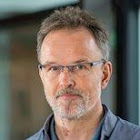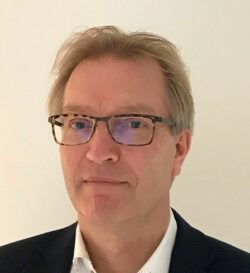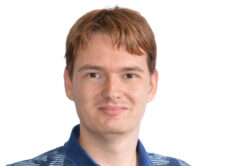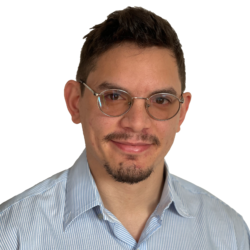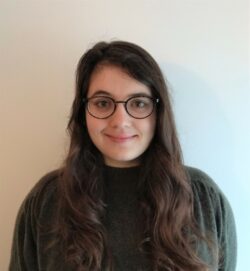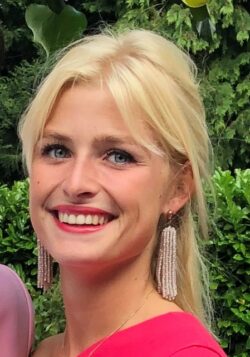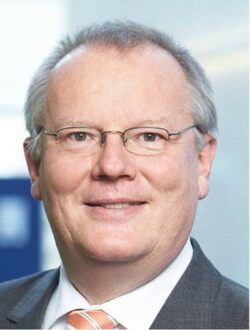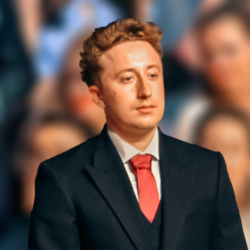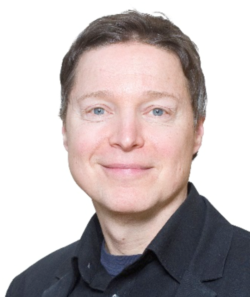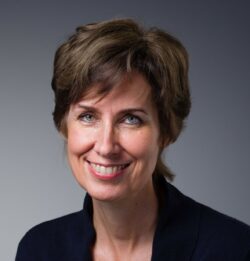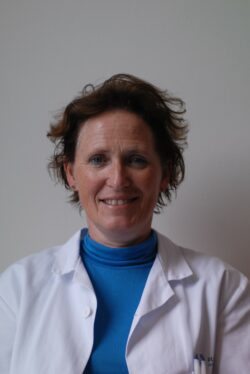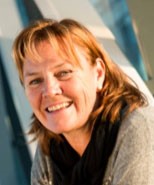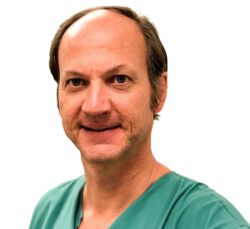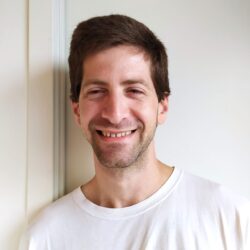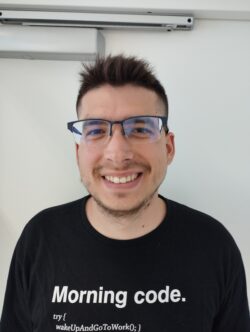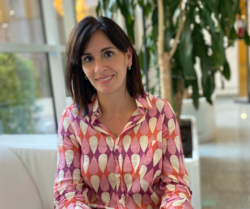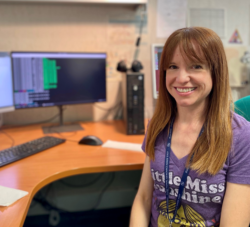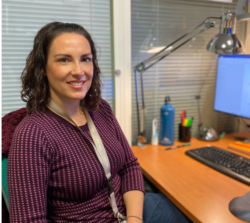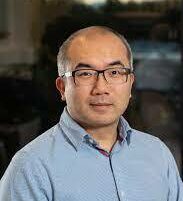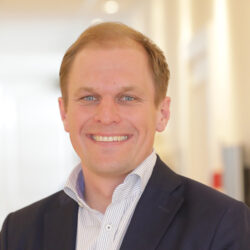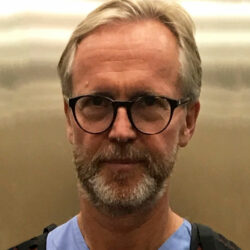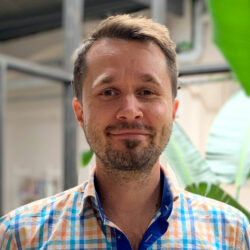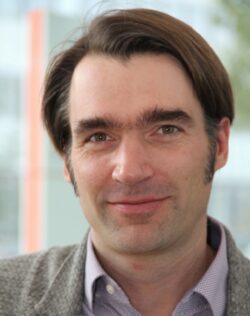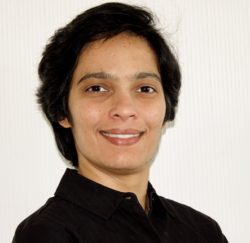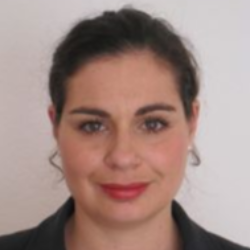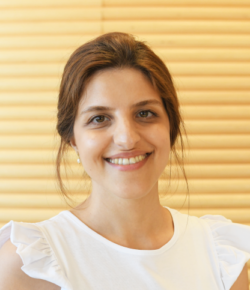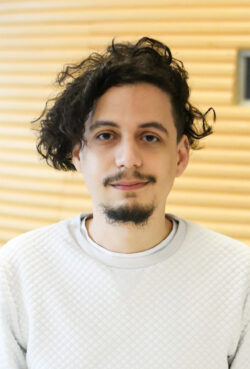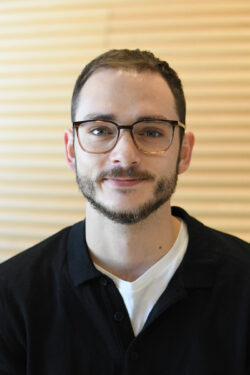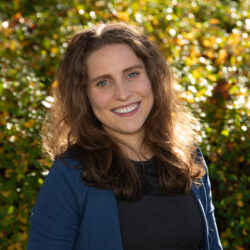Radboud University Medical Centre Nijmegen (RUMC)

Radboud University Medical Centre Nijmegen aims to have a significant impact on healthcare by providing excellent quality of care and research with a focus on participatory and personalized healthcare. The participating departments of the Radboudumc are: ‘Diagnosis and Imaging Analysis Group (diagnijmegen.nl)’, ‘Radiology, Nuclear Medicine and Anatomy’, and ‘Pathology’. DIAG is a world-leading group on deep learning in medical imaging, with 50PhD students and 11 staff members. DIAG spin-offs include Screenpoint Medical and Thirona that develop and sell AI products for breast cancer screening, quantifying lung disease.
Role in PANCAIM:
- Project leader/management
- Research radiology/pathology AI biomarkers and
- Research radiology/pathology multimodal AI applications
- Clinical validation of AI applications
Warning: Undefined variable $staffID in /www/doc/www.pancaim.eu/www/wp-content/themes/BBtheme/partnersList.php on line 26
Karolinska Institutet (KI)
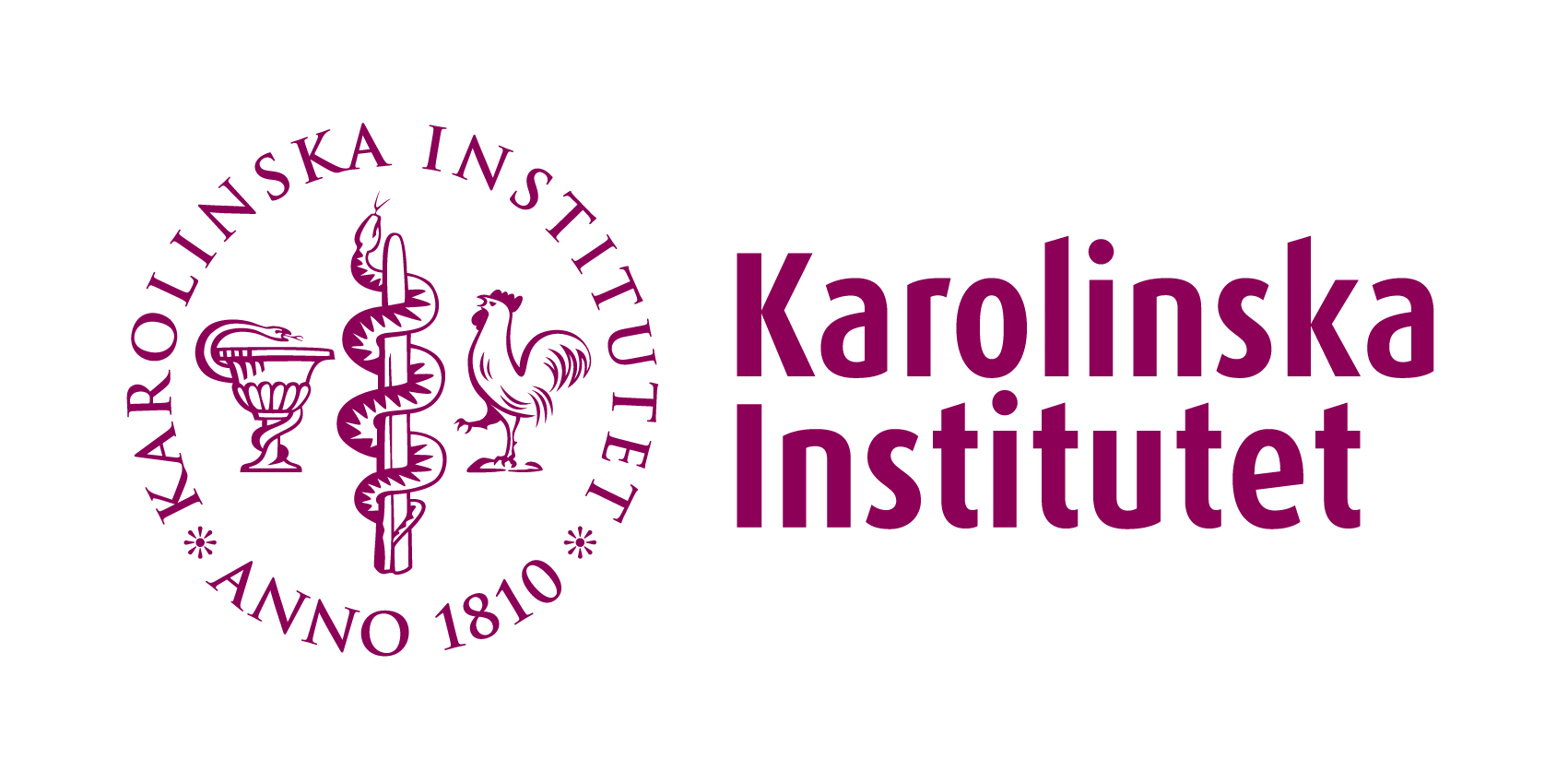
The Karolinska Institute is Sweden’s single largest centre of medical academic research and offers the country’s widest range of medical courses and programmes. It is closely affiliated with Karolinska University Hospital, the largest and most highly specialized medical centre of the Stockholm Region. The unit for upper gastrointestinal diseases at its Cancer Division is the nationally leading center for pancreatic diseases and comprises the full spectrum of pancreatic surgeons, gastroenterologists and clinical oncologists who treat approximately 100 patients with pancreatic cancer at any given time point and performs approximately 250 pancreatic operations per year. Participating researchers from Karolinska Institutet represent a larger multi-center collaboration, the CaMChaTCa project, that was established as a project group in the Pancreas 2000 educational program (https://www.pancreas2000.org/). Pancreas 2000 is a non-profit organization registered in Austria. The CaMChaTCa project curates a well-defined retrospective cohort of pancreatic cancer patients across four centers in Sweden and Germany (Karolinska University Hospital, Stockholm; Norrlands Universitety Hospital, Umeå; University Hospital of Munich (LMU), and University Medicine Göttingen).
Role in PANCAIM:
Karolinska Institutet, on behalf of CaMChaTCa / Pancreas 2000, contributes clinical expertise in the surgical and oncological treatment of pancreatic cancer throughout the project. KI team will contribute multilayer data (Genomics, clinical data, medical images and other omics) to the PANCAIM repository. They will evaluate and test how accurately the algorithms can predict relevant clinical outcomes. They will also amend and harmonize the molecular information available in their dataset and integration of this information into the repository to allow for a sufficient number of data-rich cases. KI team provides expertise in health management, ethics and economics via the Karolinska Institutet’s Department of Learning, Informatics, Management and Ethics (LIME) and will conduct the Health Technology Assessment. They will take a major role in development of clinical guidelines on the implementation of clinical AI tool.
key staffMaximilian Kordes
Show BioMats Brommels
Show BioOslo universitetssykehus HF (OUS)

Oslo universitetssykehus HF is a highly specialised hospital in charge of national, regional and local hospital assignments. The hospital is Scandinavia’s largest and carries out more than 1.2 million patient treatments yearly. OUS’ main tasks are patient treatment and care, research, education and training of health personnel, and education and training of patients and their next-of-kin.
The Institute for Cancer Research (ICR, https://ous-research.no/institute/) has since its foundation in 1954 at OUS played a central role within the field of cancer research both in Norway and internationally. ICR has a track record of successful collaborative research projects between basic and clinical sciences, as well as industrial development facilitated by strong technological capabilities of infrastructure and service core facility developing new technologies and serving the user community. The emphasis on translational science and precision oncology has resulted in numerous clinical protocols based on in-house research, and ICR is a key partner in the Comprehensive Cancer Center (CCC), organized under OUS. The Department of Pathology at OUS has a longstanding tradition of international collaborative research in the field of (tumour) immunology.
Role in PANCAIM:
OUS will contribute both to the AI developments, as well as clinical data collection and curation, experimental validation and clinical translation.
key staffSpanish National Cancer Research Center (CNIO)
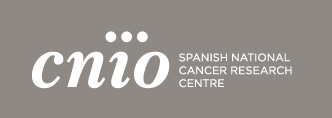
CNIO belongs to the Instituto de Salud Carlos III. It is a public foundation linked to the Ministry of Science and Innovation and the Ministry of Health. It employs, around, 400 persons (scientists, support, and administration). CNIO is one of the Severo Ochoa Centres of Excellence in Spain. CNIO hosts 26 research groups, as well as support Units, organized in 7 scientific programs (Molecular Oncology, Cancer Cell Biology, Structural Biology, Human Cancer Genetics, Clinical Research, Experimental Therapeutics and Biotechnology) in the areas of Basic and Translational Cancer Research. It is recognized as one of the leading cancer research institutions worldwide and it ranks very high in the various international evaluations of biomedical research institutions. CNIO also has a long track-record of achievements in the area of drug development and innovation, with the activities of the Experimental Therapeutics Program and the licensing of several of the molecules discovered at CNIO to major pharmaceuticals. CNIO has established partnerships with national and international hospitals, research centres, Universities, biotechnological and pharmaceutical companies. CNIO is deeply committed with society and it promotes multiple activities direct to the general public, secondary and high school students, and society in general. The Communication department is committed to develop a coherent and homogenous strategy to disseminate cancer information and the major research activities of the center, in particular. The scope of the research carried out by the Genetic and Molecular Epidemiology Group (GMEG) ranges from the identification of aetiological agents and mechanisms, to the translation of the findings into the clinical and Public Health domains, focusing on bladder, pancreatic, and breast cancers. GMEG employs a wide variety of biomarkers to better characterise exposures, genetic susceptibility patterns, and cancer outcomes. Omics data provide a unique opportunity in this regard and the Group explores its integration in epidemiologic studies. The strategic goals of the Group are to: 1) Identify non-genetic and genetic factors, as well as their interactions, associated with cancer development and progression and with its molecular/omics subphenotypes; 2) Develop and apply statistical-AI/bioinformatics tools to model the risk and course of patients with cancer by integrating epidemiologic and clinical data with omics information; and 3) Assess clinical and public health strategies for cancer control using current genomic tests and data.
Role in PANCAIM:
- To coordinate and perform AI analysis to correlate radiomics, pathomics, transcriptomics, genomics, and clinical features,
- contributor to define and annotate data relevant in the project. To upload data to the system,
- contributor to provide a list of ranked omics features to be considered in the analyses, to conduct statistical models, and to interpret results.
Silvia Pineda
Show Bio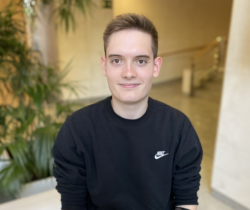
Sergio Sabroso
University of Glasgow (UOG)

Founded in 1451, the University of Glasgow is the fourth oldest university in the English-speaking world. It is one of the top 100 of the world’s universities.
Role in PANCAIM:
In this project, University of Glasgow / Glasgow Precision Oncology Laboratory (GPOL) will contribute 6 pancreatic cancer patient cohorts that are fully genomically and transcriptomically characterised to the PANCAIM project with its associated pathology and radiology data. The 5 prospectively recruited clinical trial cohorts (Precision-Panc PRIMUS-001 to -005) represents > £15M investments from Cancer Research UK, MRC, Celgene, Astra Zeneca, University of Glasgow and others. GPOL is a world leader in cancer genomics and personalised medicine, specifically pancreatic cancer, and will contribute both data and expertise in the area to PANCAIM. GPOL also contribute to PANCAIM with its significant experience in the discovery, development and translation of biomarkers of prognosis and therapeutic responsiveness in pancreatic cancer using genomics, clinical, pathology and the combination of.
key staffCollective Minds Radiology (CM)

Collective Minds Radiology is a healthcare collaboration company. Our services include clinical consultation, sponsored and academic research, and education. We help institutions and consortiums to build healthcare data repositories and analysis tools. Headquartered in Stockholm Sweden with product engineering in Barcelona, Spain partnering with customers all over Europe.
Role in PANCAIM:
Most of the CM tasks are related to design, develop, run and maintain the data repository. CM will design and develop a repository that is flexible enough to handle the multiplemodality data, initially from the committed data assets and over time new prospective data. CM will create a legal framework to comfort data contributors, allows for participants to get access and protects patients’ privacy and run, update and maintain the data repository to ensure quick and reliable functionality and access to all data throughout the duration of the project. CM will take part in the long-term sustainability strategy of the repository.
key staffSiemens Healthineers (SHL)

Siemens Healthineers is one of the largest technology providers for medical imaging technology, laboratory diagnostics, and clinical IT solutions, with about 50,000 employees in over 70 countries. Siemens Healthineers is a pioneer in the use of AI for medical applications for more than 20 years, with more than 700 patents and patent applications related to machine learning, of which more than 275 are rooted in deep learning. With over 60 AI-enriched offerings already on the market, established AI expertise, future-oriented staff, vast medical data sets, and the exceptional computing power needed for creating algorithm-supported healthcare solutions, Siemens Healthineers is the right partner for innovation and development of AI-powered applications.
Role in PANCAIM:
In this project, Siemens Healthineers will contribute to the development of AI algorithms, system integration, and clinical validation of AI solutions in teamplay Digital Health Platform, as well as an additional data pipeline to process raw genomics & sequencing data, which will provide for stronger and more accurate AI models.
key staffMichael Kelm
Show BioThe Hyve (HYVE)

The Hyve is an innovative international company, focused on providing software development, data management tools and services for clinical and biomedical data. We do this by building on existing open source software and communities. Our mission is to empower scientists with user-friendly software to organize, visualize, publish and share their research data. The core values of The Hyve are sharing, reuse and specialization. We provide several services to our customers, ranging from customization of tools to data hosting in the cloud. Most of our customer activities are either in translational medicine, where we work with pharmaceutical companies or academic hospitals and research organizations. The Hyve has joined several precompetitive initiatives and is active in the field of FAIR (Findable, Accessible, Interoperable and Reusable) data management.
Role in PANCAIM:
Within the PANCAIM project, the main task of The Hyve will be to provide a FAIR research platform. This platform will allow the researchers within the consortium to add their data with rich metadata, resulting in a overview of all available data. To do this, The Hyve will use its expertise in FAIR data management to extend the Fairspace tool.
key staffAMIRES (AMI)

AMIRES is a consulting and management company for research, development and innovation projects, which provides the necessary strategic and administrative support to high quality international teams to achieve their objectives and facilitates the research-industrial and research-policy making interface. AMIRES follows projects from their initiation and planning, through negotiation, execution and management to the final stage, where exploitation of new technologies, products or services is facilitated. Moreover, main mission of the company is to facilitate the access of European research to high-tech SMEs and improve exploitation of innovative ideas. AMIRES s. r. o. is based in the Czech Republic but provides its services all around Europe.
Role in PANCAIM:
Within the project, AMIRES is be actively involved in the administrative and financial project management tasks and is responsible for the dissemination activities.
key staff